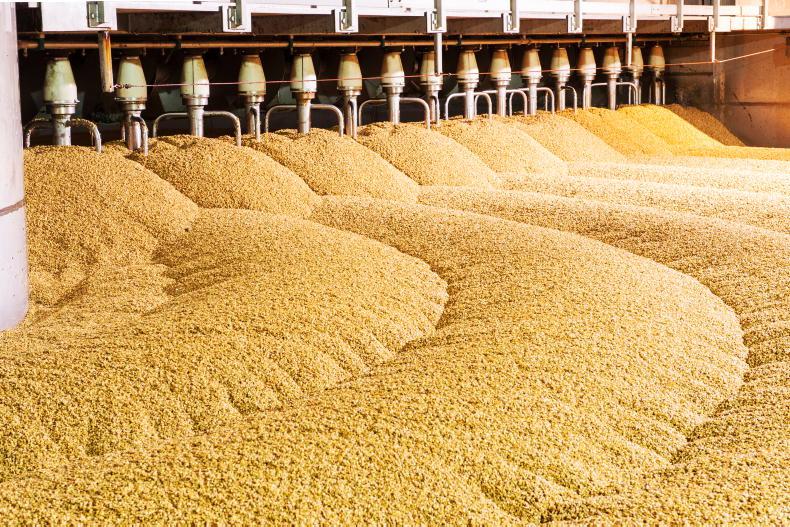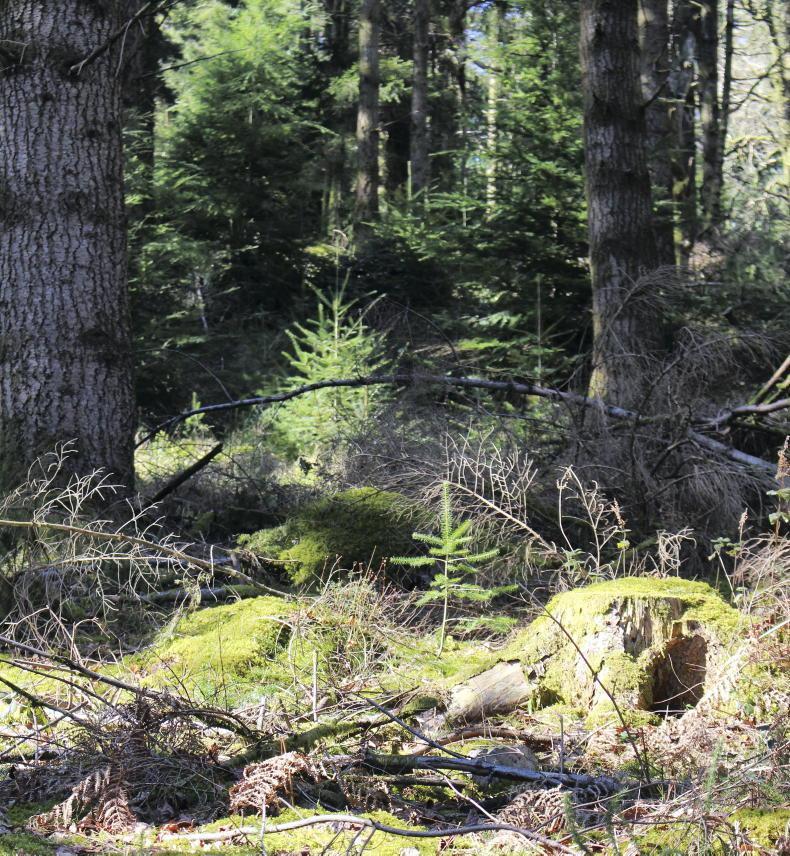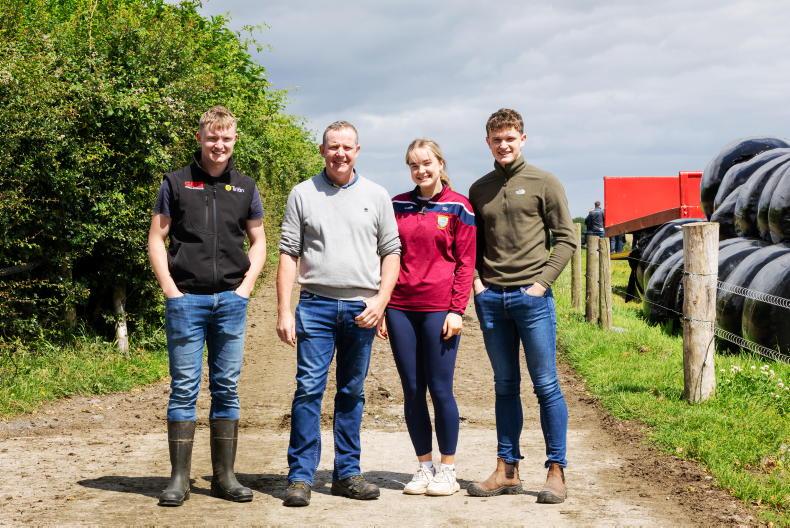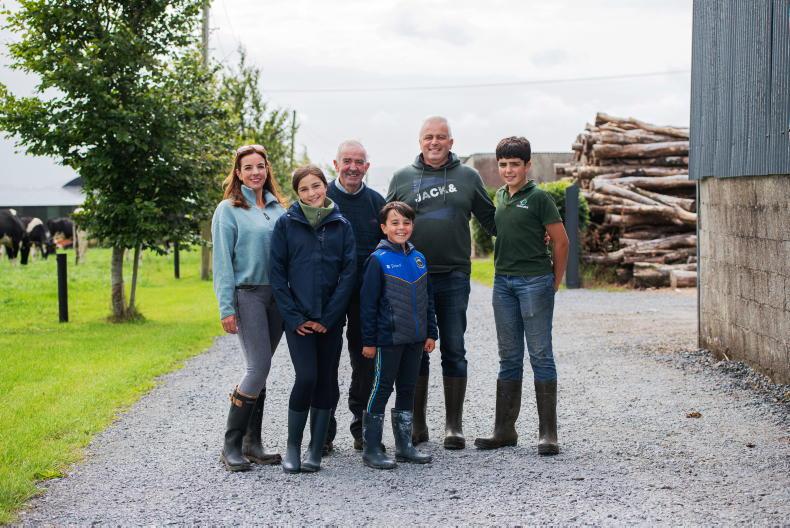A new scheme is being rolled out for arable farmers in the UK which will pay participants for building carbon stocks in soils and cutting greenhouse gas emissions.
The scheme, which is run by independent agronomy firm Soil Capital, opened for farmers in Belgium and France last autumn.
“We signed up 150 arable farmers with just over 30,000 hectares and we are launching the carbon payment programme in the UK right now,” explained Andrew Voysey from Soil Capital.
The scheme will be open to farmers in NI but is targeted at large farms that have arable as the main farming enterprise.
“The intention is to expand the programme to livestock farmers within the next couple of years. We are actively working on it at the moment,” Voysey said in an interview with the Irish Farmers Journal.
The principle of the programme is that farmers build carbon levels in soils, reduce emissions from farming practices, or both, and then certificates are issued based on the net improvement in the farm’s carbon profile.
Each certificate equates to one tonne of carbon dioxide equivalent (CO2e) and Soil Capital have found that it is not unrealistic for programme farms to improve their carbon profile by 1.0t of CO2e per hectare per year.
The certificates are bought by third party companies who want to support regenerative farming techniques and £23 per certificate is set as the minimum price paid to the farmer.
Timeline
The programme runs for 16 years in total. The first year is used for establishing the baseline carbon profile of the farm and payments for improvements to it are then made over the next five years.
According to Soil Capital, techniques to improve the carbon profile of a farm include less use of synthetic inputs, minimising soil disturbance, planting cover crops and diversifying cropping rotations.
In years 11 to 16, payments are available for maintaining the extra carbon which was stored in soils during the initial years of the programme.
Voysey gives the example of a 200-hectare farm which could expect to receive an annual payment of around £3,600 during the first five years of the scheme, with £1,100 per annum available after ten years.
It means around £22,500 is earned from the scheme over its 16-year lifetime. However, despite being a reasonable return, it would be considered a minor income stream on most 200ha farms.
Voysey acknowledges the point by describing current returns from the scheme as “modest but meaningful”, although he appears optimistic about the years ahead.
“The carbon market is very new at the moment. We see very strong demand from both food companies and non-food companies who are looking to support the transition of farming to climate positive practices,” he maintained.
“The current analysis is that demand for these kinds of certificates outstrips supply. If you look forward to expected prices for carbon in different industries, the only direction is up. Farmers in our programme will directly benefit from rising certificate prices,” he added.
Efficiency gains
Voysey also points out that improving a farm’s carbon profile through the scheme will bring other benefits, such as better soil fertility and improved production efficiencies.
“On top of new revenues from carbon, there is an additional economic prize which is much more significant in financial terms. These are savings which can be made in production costs without introducing yield declines or risk to the system,” he said.
Carbon measurements will change, says Voysey
The Soil Capital scheme involves annual carbon audits of the participating farms, but, with so much still unknown about soil carbon sequestration and agricultural emissions, are the figures are accurate?
“It is an evolving landscape. There will be plenty of improvements in the science and the monitoring techniques,” responds Andrew Voysey.
“Our feeling is that we know enough now to act. The corporates, who are buying the carbon certificates, see our methodology as credible and robust,” he added.
When a company with no supply chain link to farmers in the Soil Capital scheme buys certificates, they cannot use the certificates as a carbon credit to offset their own greenhouse gas emissions.
However, companies that do buy crops from the farmers can use the certificates to prove their supply chain emissions have reduced. Voysey gives example of global food corporation Cargill who currently purchase certificates from the Soil Capital scheme.
The fact that the certificates do not allow offsetting means that when emissions are reported to national governments, the improvements that farmers make under the Soil Capital scheme will still be attributed to the agriculture (or land use) sector and will not be double counted or used in an unrelated sector.
Farm size
Soil Capital advise that the scheme is most suitable for farms over 100 hectares in size. This is because there is a fixed annual fee of £980 during the first six years which makes it more economical for larger farms to participate.
However, the plan is to make the programme more accessible to other farmers in the future. “Our intent is to be able to support smaller farms in the programme by having separate funds available to help them cover their costs,” Voysey said.









SHARING OPTIONS